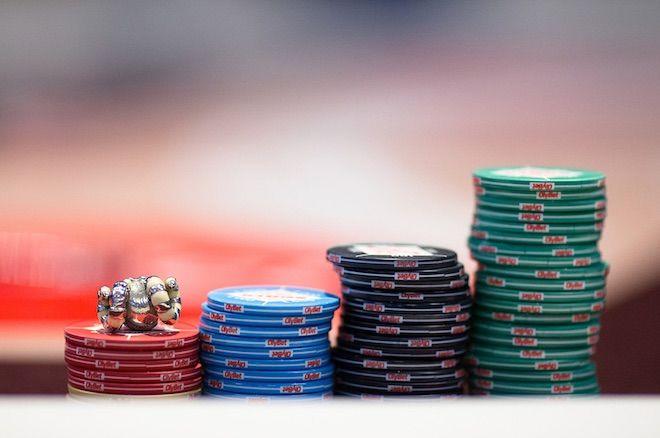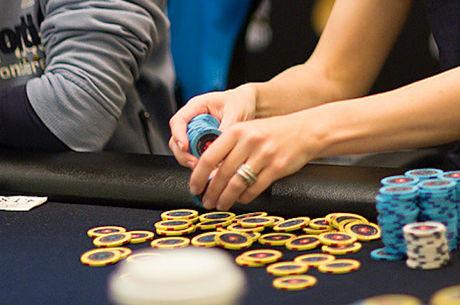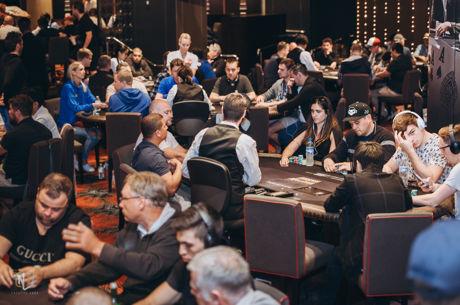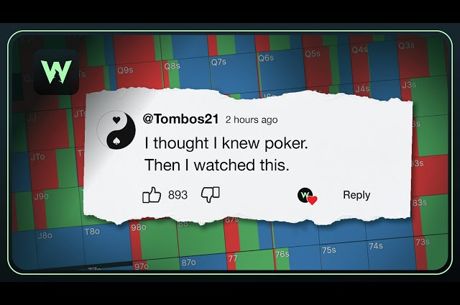5 Key Strategies For Winning Consistently in Small Stakes Poker Games

If there is one thing I hear the most from small stakes poker players it is they can't seem to consistently turn a profit at the poker tables.
They will win big one session — or even several sessions in a row — but then inevitably the cards will go south on them and they will lose all of their profit back.
This is a problem because everybody has winning and losing days in poker. What the most successful poker players do, however, is lose less on their bad days and win more on their good days.
In this article I am going to give you five of my top strategies for learning how to win consistently in small stakes poker games.
1. Maximize Your Winnings on the Good Days
As I mentioned above, you are going to have good days and bad days in poker. Some days you will be hitting every top pair, making your flushes and the like. And just as importantly, on those good days your opponents will keep having decent second-best hands with which to pay you off as well.
But there will also be other days when you can't make a hand to save your life. And when you finally do make a hand, guess what? That's right — they will have the higher flush, the higher set, and other better hands. If you have played poker for any amount of time, I think you know what I am talking about here.
Now half the battle to learning how to win consistently at the poker tables is simply maximizing your winnings on the good days. You know that on some days you are going to have to take some losses, so winning as much as possible on the good days is absolutely key.
This is why you need immediately to shed the "protectionist" mentality many small stakes players have of winning a few buy-ins and then wanting to quit in order to "lock up the win." This isn't how poker works. Poker is one long session and your results on any individual day literally matter very little.
By quitting early when things are going well — and, more importantly, when you are probably playing well also — you are only hurting yourself. When the cards are falling your way, try to keep playing as long as possible.
2. Minimize Your Losses on the Bad Days
The reverse is true as well. On the days when absolutely nothing is working for you, you want to quit early and stop the bleeding.
But again, many small stakes players do the exact opposite. They want to keep playing to get back what they've lost. Or even worse, they'll jump up in stakes if they are stuck a lot to try and win it back faster.
The problem with this strategy is that even though you might not realize it in the moment, you are likely playing very poorly on days like this. Your judgment and decision-making is clouded by emotions. You are likely to play a looser game and more aggressively, and as a result you'll be more apt to make bad calls and other poor decisions.
If you want to start turning a long term consistent profit in poker, one of the absolute best things you can do is just leave the poker table on these bad days. You have to remember that poker games literally run around the clock. That's true both for online poker and even for live games for the most part. In other words, the games aren't going anywhere.
One of the absolute most valuable lessons you can learn in poker is how to take a small loss and come back the next day with a clear head rather than continuing to play and burying yourself with a big loss.
3. Don't Play in Unprofitable Games
Something else you can do in order to win consistently in poker is to start paying more attention when it comes to game selection. If there isn't a clear reason why you are at the table (i.e., somebody at the table who plays much worse than you), there is no reason why you should be at that table.
This is a big mistake that I see small stakes players making all the time. That is, they sit down and play in games full of other strong regulars, not thinking how detrimental taking on such a challenge is likely going to be to their bankroll.
While I know it can be a pain to change tables or even poker sites or casinos, you have to understand that the profit in poker does not come from playing with other people who are equally skilled to you or better. You are going to be essentially trading money back and forth with them in the long run (if not losing). And truthfully, even if you hang in there against such opponents, you will often still show a loss once the rake is taken out.
It is absolutely crucial, then, that there is always at least one player who is a clear soft spot in any poker game that you choose to play.
4. Don't Pay Attention to the Short Term
As I touched on before, short term results (day-to-day, week-to-week) really just aren't that important in poker. It is only the long run of months and years of play that really matters.
This is why I would suggest you make a real effort, especially if you play online, to stop checking your bankroll so often. Keep recording your results after each session, of course, but avoid the constant checking. As long as you are properly bankrolled for the games in which you are playing, there should be no issue.
By not checking your bankroll so frequently, you prevent yourself from getting emotional during the downswings. You also prevent yourself from getting a false sense of superiority during the good times.
As I often say in poker, neither the heaters nor the downswings are what is real. Both are illusions — the outliers, the abnormal. The truth about your abilities actually lies somewhere in the middle.
5. Take Them to Value Town
Small stakes poker games are often dominated these days by tight-passive regs and loose, "calling station" recreational players. The biggest key to your success in these games therefore is going to be getting the maximum value with your good hands.
There is no point in trying to bluff a lot at stakes like this. They are just going to call you down, which will cause you to get even more tilted.
You need to become a master of the value bet instead. And I am not talking about situations here where you have AxAx or a flush. Everybody knows how to value bet in these spots. I am talking instead about the thin value bets where you have something like second or even third pair on the river and they check it to you.
Oftentimes many of these bad players at the lower limits will be willing to hero call you with their ace-high if you make a bet. This is especially the case with smaller bets like one-third of the pot.
Don't just check it back and take the showdown like most people do at these stakes. The very biggest winners in these games are always getting that thin value even when it seems impossible that they can call you with worse. Trust me, they can and will at the micros!
Final Thoughts
Learning how to win consistently in the lower limit poker games is one of the very first steps you need to take in order to have a lot of success in this game.
One of the most important keys to remember is to maximize your winnings on the good days and minimize your losses on the bad days. Most players do the exact opposite.
You also want to make sure that you are always playing in profitable games, getting the absolute maximum value out of them, and ignoring your short term results.
Nathan "BlackRain79" Williams is the author of the popular micro stakes strategy books Crushing the Microstakes, Modern Small Stakes, and The Microstakes Playbook. He also blogs regularly about all things related to the micros over at www.blackrain79.com.









